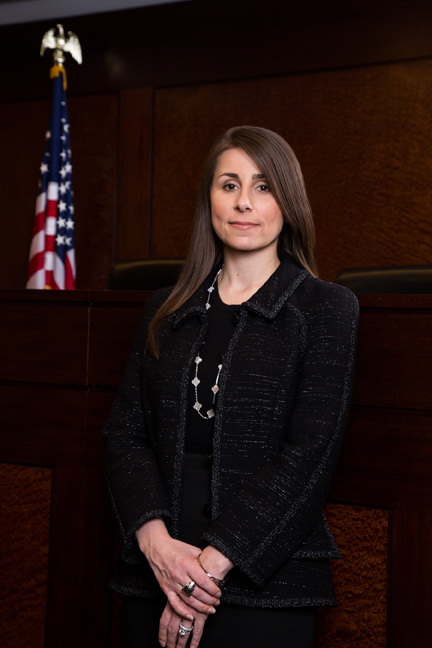Cravath’s New York Office Moves to Two Manhattan West
Implications of the U.S. Supreme Court’s Unanimous Decision in International Child Custody Case, Lozano v. Alvarez
On March 5, 2014, the U.S. Supreme Court ruled unanimously in favor of Cravath pro bono client, Diana Montoya Alvarez, upholding the decision by the Second Circuit Court of Appeals to affirm the denial of a petition pursuant to the Hague Convention on the Civil Aspects of International Child Abduction (the “Convention”), which requested that Ms. Montoya Alvarez’s daughter be returned to the United Kingdom for custody proceedings. This decision concluded a nearly four-year battle by Cravath attorneys to keep Ms. Montoya Alvarez’s daughter in the United States after both Ms. Montoya Alvarez and her daughter had fled the United Kingdom for reasons related to alleged domestic abuse by the child’s father.
We asked Lauren Moskowitz, who tried the case and argued the Second Circuit appeal as an associate and argued the Supreme Court petition as a first-year partner at age 33, to explain the implications of this decision and her experience handling the case.

Photo credit: Michael Mowery
How did you come to lead the trial and appeals in this pro bono matter as an associate?
Cravath took this case as part of the Firm’s regular pro bono work for Sanctuary for Families. As a rising sixth-year senior associate, I was asked by one of the Firm’s managing partners to lead the trial team. Cravath encourages early hands-on responsibility over various aspects of litigation in order to give associates a breadth of experience. Despite having a busy work load handling mortgage-backed securities litigation, I jumped at the chance for trial work. I remained the lead as the case was appealed, arguing before the Second Circuit and, ultimately, before the Supreme Court.
How does the Lozano decision affect international custody disputes?
The decision protects the rights of children and parents in the United States to raise the “now settled” defense to return to a former country of residence under the Hague Convention, a defense that considers the child’s well-being and interest in settlement in the new country. Article 12 of the Convention provides that if the parent in the other country files a petition for return within one year of the child’s removal, a court “shall order the return of the child forthwith.” But if the petition is filed after the one-year period expires—as was the case here—the court does not have to order the return of the child when “it is demonstrated that the child is now settled in its new environment.”
The U.S. District Court for the Southern District of New York had denied the petition to send Ms. Montoya Alvarez’s daughter back to the United Kingdom because the petition was filed by the child’s father more than 16 months after the child and her mother left the country. After a two-day evidentiary hearing, the court concluded that the child, who attended school and had attained stability in the United States, was now settled here and would suffer if she were again uprooted and forced to return to the United Kingdom.
Both the Second Circuit and Supreme Court unanimously affirmed the district court’s decision, on the basis that the Convention does not allow for equitable tolling of the one-year period for filing the petition, even if, as was alleged in this case, the non-removing parent did not discover the child’s whereabouts until a few months after she had left the country. The evidence showed that the child was now settled in the United States and, as Justice Clarence Thomas wrote on behalf of the Supreme Court, while “the Convention reflects a design to discourage child abduction,” it “does not pursue that goal at any cost.” (Slip Op. at 14).
This is the third Convention case the Supreme Court has addressed in the past four years and brings U.S. interpretation of the treaty on this critical issue in line with that of other signatory nations.
What were the legal and evidentiary challenges in this case and how did you address them?
To achieve this win, we had to argue against the weight of U.S. precedent and public sympathy favoring the left-behind parent and persuade the courts that equitable tolling should not apply to the “now settled” defense as a matter of law. There was substantial adverse precedent from the Fifth, Ninth and Eleventh Circuits and district courts from four other Circuits, which held that the “now settled” defense can be equitably tolled. No Circuit Court ever had held the opposite; only a few district courts had done so before this case.
To counter this adverse precedent, we argued that the courts that had allowed tolling failed adequately to consider the genesis of the “now settled” defense. We conducted an extensive analysis of the Convention’s text, purpose and drafting history to show that (i) the “now settled” defense as drafted is not a statute of limitations and does not provide for equitable tolling; (ii) the drafters did not intend the defense to be subject to equitable tolling; and (iii) equitable tolling would not be consistent with the purpose of the Convention, which is to recognize the interests of the child who has settled into her new environment after a year.
Aside from explaining why the “now settled” defense should not be equitably tolled in this case, we had the burden of proof to show that the child is in fact now settled in the United States, despite her and her mother’s lack of legal immigration status. At the evidentiary hearing before the trial court, we argued that preserving the child’s best interests requires a review of the totality of the circumstances, not just immigration status. We successfully showed through testimony from the parties, the child’s therapist and psychology experts, that Ms. Montoya Alvarez’s daughter was thriving in the United States, and it was in her best interests to remain here.

Photo credit: Michael Mowery
Justice Alito discussed judicial discretion to review the “totality of circumstances” as a means of discouraging child abduction and abuse of the “now settled” defense. Can you elaborate?
On appeal, the father had argued that Ms. Montoya Alvarez should be precluded from raising the “now settled” defense because the one-year period should have been equitably tolled until he reasonably could have located the child. He argued that if the “now settled” defense were not subject to equitable tolling, it would facilitate child abduction because removing parents could conceal their children and thereby run the clock on the one-year period before the non-removing parent could locate the child and bring a petition.
In response to this argument, Justice Alito in his concurring opinion made clear that Article 12 places no limit on the Convention’s grant of discretionary power to courts to order a child’s return, even after the one-year period has elapsed. He explained that a court may order return when the child’s attachment and interest in returning to her home country is stronger than remaining in the new country. He added that a court may also weigh the need to discourage inequitable conduct (such as concealment) by abducting parents.
What impact does the Court’s ruling on equitable tolling have on other international treaties?
The decision provides important guidance on the application of equitable tolling to international treaties generally because it clarifies that, unlike federal statutes, there is no general presumption that equitable tolling applies to treaties. Equitable tolling should only be applied to a treaty if it is a background principle shared by the signatories.
How has your experience in this case shaped your litigation practice?
This early trial and appellate experience in such an important matter has been incredibly rewarding, both professionally and personally. Because of Cravath’s generalist training system and the opportunity to get involved in pro bono matters, by the time I became a partner I had substantive experience in many different areas of law and stages of litigation, as well as exposure to different clients.
Hague Convention cases, in particular, are an exciting challenge because the rules surrounding document production and the examination of witnesses differ significantly from U.S. federal and state law. We had to be creative throughout the process, and particularly quick-thinking during trial—a skill set that will undoubtedly serve me well as my career progresses.
Related Practices & Industries
People
-
J.D., 2005, Fordham University School of Lawmagna cum laude
-
B.A., 2002, Cornell University
- New York
Education
Admitted In
Cravath Bicentennial
Celebrating 200 years of partnership. In 2019, we celebrated our bicentennial. Our history mirrors that of our nation. Integral to our story is our culture.
Attorney Advertising. ©2025 Cravath, Swaine & Moore LLP.


